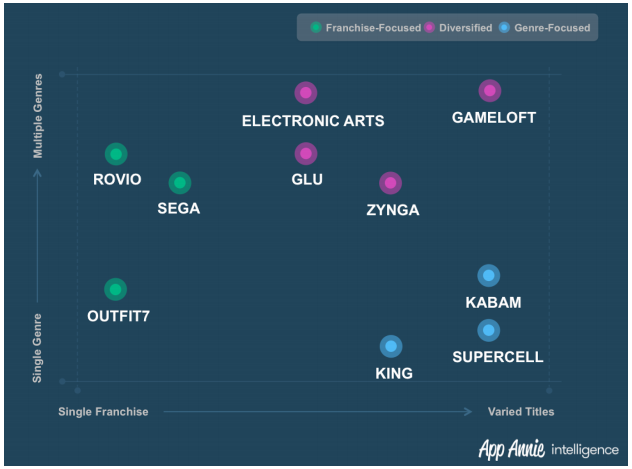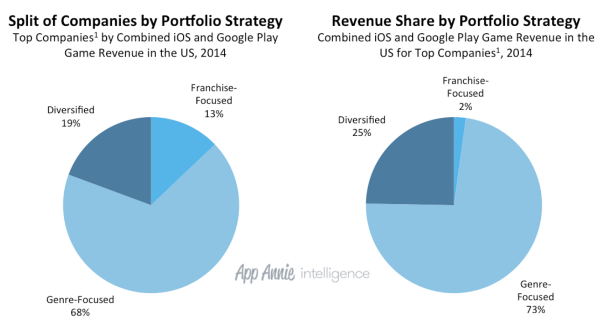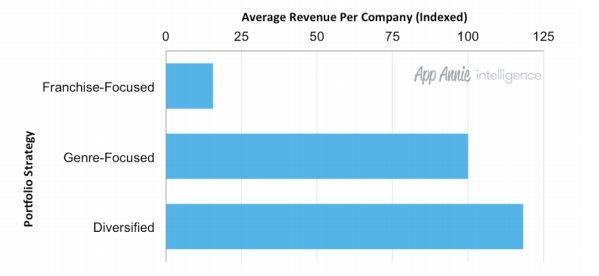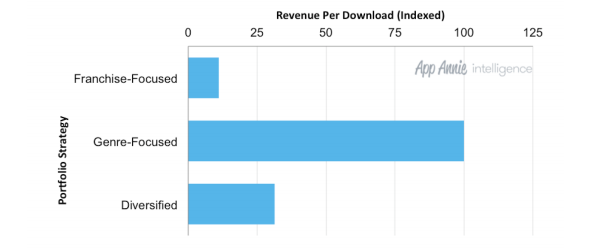Success in the entertainment industry is always difficult to predict. The reason is that an unpredictable and extremely complex network of social influences plays a dominant role in it. Investors struggle with this in a very obvious way: by investing in a wide portfolio of projects.
With this thought (and a reference to an article in the Harvard Business Review) The latest App Annie study “Portfolio Strategies in the Mobile Gaming Industry” begins. From it, in fact, it grows. Analysts decided to highlight the approaches that successful mobile game developers use in the development of their companies.
In total, three types of strategies were identified, starting from the top 100 cash mobile gaming companies in the USA (the total top on the App Store / Google Play):
Brand-oriented: those companies that earn 50% of their money from at least two games in one IP (on the App Store and Google Play), including sequels, offshoots, games about the same heroes, and so on. To get into the group, it was necessary that the second application was responsible for 5% or more of mobile revenue.
Examples: Rovio, Outfit7
Genre-oriented: those companies that earn the same 50% from mobile revenue on at least two games of the same genre. To get into the company’s selection, the second game had to account for at least 5% of the total revenue from the App Store and Google Play.
Examples: King, Supercell
Diversified: Those companies that do not have games or franchises/genres that generate more than 50% of mobile revenue.
Examples: Disney, EA, Zynga
Other: those companies where more than 50% of mobile revenue was generated by one game, but there was no other game of the same genre or IP that would generate at least 5% of mobile revenue. 38 out of 100 companies fell under this category. Most of them get 90% of their income from one game. Such companies were excluded from the analysis because they do not follow a specific strategy within the framework of the study.
Example: Mojang
So what did App Annie find out?
It turns out that most successful companies following a certain strategy are genre-oriented (68%). Moreover, they account for the most money (73%).
However, diversified companies have a higher average income received from mobile platforms (on average, 6-8 times more than brand-oriented ones). App Annie explains this by saying that such a strategy requires a huge portfolio of games.
Genre-oriented companies, on the other hand, are very much ahead of diversified companies in terms of revenue from one download.
All this suggests that the most viable strategy in the market is precisely genre-oriented, when the team releases projects to the market in those genres in which it understands.
But brand-oriented companies can make excellent money on merchandising and the sale of rights.
A source: http://blog.appannie.com





